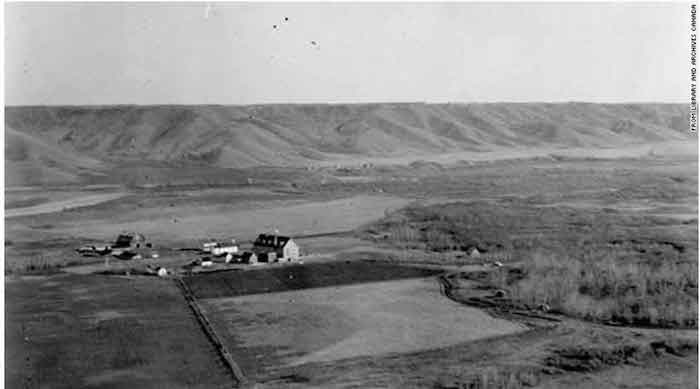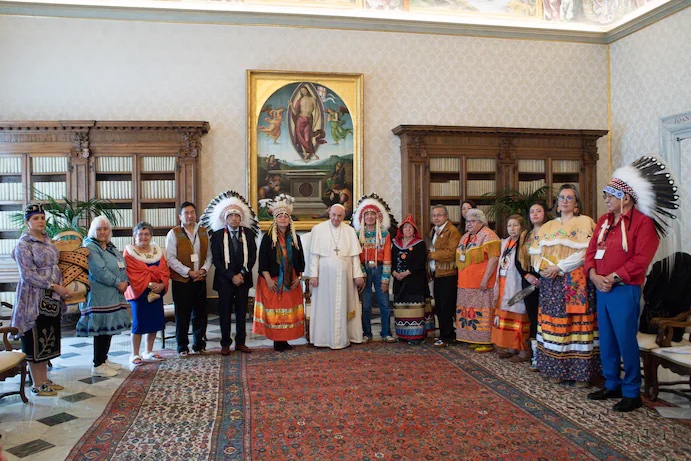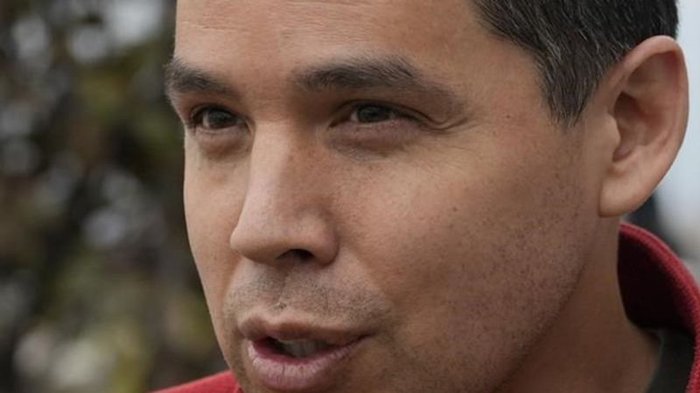
By James Murray
After an 11-year investigation into abuse at the Fort Alexander residential school, RCMP charged a retired priest on Friday for the sexual assault of a 10-year-old girl.
The charge against Arthur Masse was hardly a surprise. You don’t have to travel far to hear from survivors who live mostly in Sagkeeng First Nation that conditions at the school were horrific, abuse was rampant and that predators were everywhere.
The only surprise for most of us is that a charge happened at all.
For decades, victims of abuse have told strikingly similar stories about life at Fort Alexander residential school, which was run by the Oblates of Mary Immaculate until 1970.
Survivors have shared with their families, clergy, political leaders and police about what they have experienced. Some have even published books, like author Theodore Fontaine, or appeared on the nightly news, like Phil Fontaine did in 1990.
In 2010, when documents corroborating accounts of the abuse came to light, Manitoba RCMP opened up an investigation.
Eleven years, 700 interviews, 80 investigators, and 75 witness and victim statements later, a single charge was announced.
A single charge.
“The question may be asked: Why, with all this work, was there one charge laid and not many?” RCMP spokesperson Sgt. Paul Manaigre told media on Friday. “Unfortunately, due to the passage of time, many of the victims are not able to participate in the investigation, whether that be for mental or physical health reasons, or because the victim is now deceased.”
A far more likely truth is that “authorities” don’t believe survivors.
I know this first hand.
My grandfather experienced brutal abuse at Fort Alexander.
One day, while working in the field, he couldn’t lift a pail of water. When he started crying, the priest beat him so badly in the head he lost much of his hearing on one side.
He was six.
In the basement of the school was a room students who were forced to sit silently for hours on threat of violence or work in dangerous conditions with scalding water in the laundry room.
If anyone acted out — or sometimes for little reason at all — beatings with the “lash” were a regular occurrence, and would take place for all to see.
My uncle Elmer, my grandfather’s older brother who attended alongside him, told our family that some nights boys who had been lashed would cry all night in bed from the pain.
“I often wondered how men and women who professed to be Christians and were serving in religious orders could be so mean and cruel. Their sole purpose seemed to be to break our spirits,” he said.
Then, my uncle said something else about Fort Alexander residential school I’ll never forget.
“I don’t remember ever hearing a kind word during my three-year stay in the school,” he said. “I suppose being brought up in such a cruel and loveless environment affected our later lives.”
This raises the toughest reality to discuss about Fort Alexander residential school: the sexual abuse.
My grandfather experienced it there too, leading to decades of self-harm, alcoholism and his abuse (physically, not sexually) of his own children.
I share these horrific details not because I want to, but because I have to.
It’s a story our family carries.
To change cycles and patterns of violence, I must face this horrific legacy from my life.
This is why survivors should guide our next move.
In this case, the alleged perpetrator is almost finished his life. If found guilty, and if the family of the survivor wants him to go to jail, we should not argue with them.
Most survivors, however, do not want “justice” in the form of jail time but reconciliation for their families, communities and future generations.
The justice system, both provincially and nationally, is sorely inadequate in this regard.
It is not enough to simply charge an old man, but rather to help heal the thousands of lives damaged by the institutions that hired, protected and ignored the stories for decades.
This means Indigenous-led health supports, particularly for abuse survivors and their families. It means language revitalization programs. It means restoring and recognizing Indigenous governments on their own terms.
And not doubting survivors when they share their stories.
It shouldn’t take millions of dollars and hours of work to legitimize dozens of similar accounts, but apparently it does if you’re Indigenous.
Let’s change that.
Complete Article ↪HERE↩!






